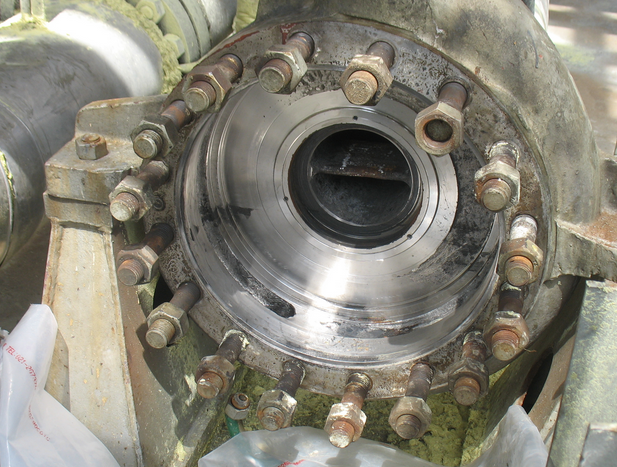Reasons for demagnetization of magnetic steel in magnetic pump
The reasons for the demagnetization of magnetic steel in magnetic pumps can be attributed to multiple aspects, mainly including the following points:
1. Temperature factors
Unreasonable use temperature: Magnetic steel of magnetic pumps is sensitive to temperature. When the temperature exceeds the tolerance range of magnetic steel, it will cause the magnetic steel to demagnetize. Magnetic steel of different materials has different temperature resistance limits. For example, magnetic steel made of NdFeB material may enter an irreversible demagnetization state when it exceeds 150°C, and high-performance magnetic steel made of SmCo material may also have a similar situation when it exceeds 350°C.
Insufficient cooling: During the operation of the magnetic pump, if the magnetic rotor part is not effectively cooled, the temperature of the magnetic steel will rise and demagnetize. Especially when using a metal isolation sleeve, the rotation of the inner and outer magnetic rotors will cut the magnetic lines and generate a large amount of magnetic eddy current losses. These losses are manifested in the form of heat, which further aggravates the temperature increase of the magnetic steel.

2. Operating conditions
Long-term low-lift operation: When running at low lift for a long time, the magnetic pump may cause the internal temperature to rise due to too low workload, thereby affecting the magnetism of the magnetic steel.
Idle operation: When the magnetic pump is idling, there is no medium for lubrication and cooling, which will cause dry friction of the sliding bearing and generate a lot of heat, thereby increasing the temperature of the magnetic steel and demagnetizing it.
Irrational pipeline matching: If the inlet and outlet pipelines of the magnetic pump are not designed reasonably, such as too many elbows and too small pipe diameters, the running resistance of the pump will increase and the internal temperature will increase.
3. Medium factors
Medium properties: If the medium being transported is volatile or vaporized, bubbles will form and block the flow channel when the temperature rises, causing the continuity of the liquid flow in the pump to be destroyed, thereby causing dry friction and high-temperature demagnetization.
Medium temperature: If the temperature of the medium entering the pump is higher than its vaporization temperature, the medium will vaporize and form bubbles in the pump, further exacerbating the temperature rise and cavitation in the pump.
4. Maintenance
Sliding bearing wear: If the sliding bearing is not replaced in time after wear, the lubrication and cooling effect between the friction pairs will deteriorate, thereby increasing the temperature of the magnetic steel and demagnetizing it.
Abnormal rotor parts: Problems such as abnormal stuck rotor parts or blockage of pump inlet and outlet pipes can also cause the internal temperature of the magnetic pump to rise and affect the magnetism of the magnet.
5. Other factors
Electromagnetic interference: In industrial environments, electromagnetic interference may also affect the magnetism of the magnet, leading to demagnetization.
Vibration and shock: The vibration and shock generated by the magnetic pump during operation may also have an adverse effect on the magnetism of the magnet.




